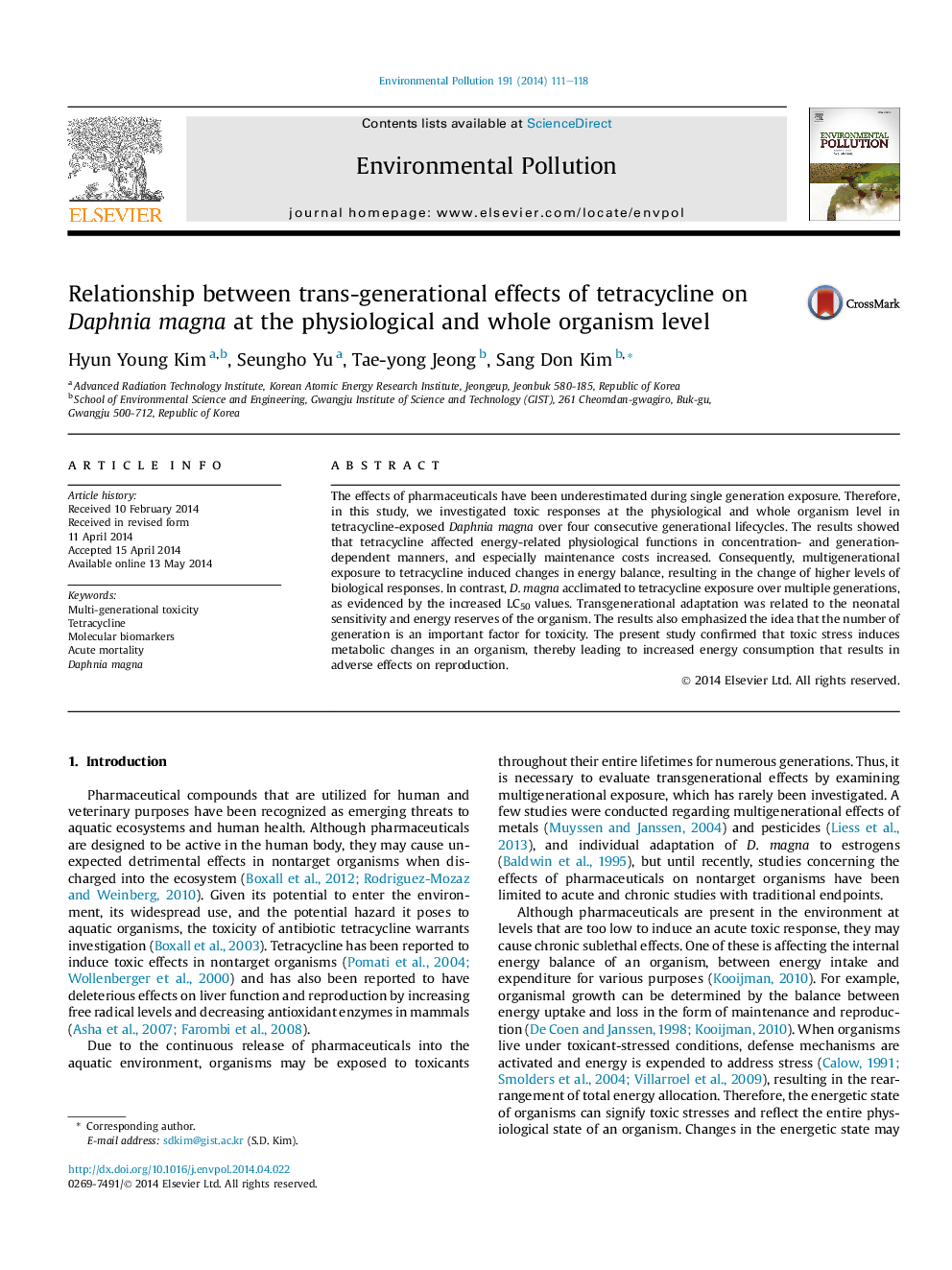| Article ID | Journal | Published Year | Pages | File Type |
|---|---|---|---|---|
| 4424433 | Environmental Pollution | 2014 | 8 Pages |
Abstract
The effects of pharmaceuticals have been underestimated during single generation exposure. Therefore, in this study, we investigated toxic responses at the physiological and whole organism level in tetracycline-exposed Daphnia magna over four consecutive generational lifecycles. The results showed that tetracycline affected energy-related physiological functions in concentration- and generation-dependent manners, and especially maintenance costs increased. Consequently, multigenerational exposure to tetracycline induced changes in energy balance, resulting in the change of higher levels of biological responses. In contrast, D. magna acclimated to tetracycline exposure over multiple generations, as evidenced by the increased LC50 values. Transgenerational adaptation was related to the neonatal sensitivity and energy reserves of the organism. The results also emphasized the idea that the number of generation is an important factor for toxicity. The present study confirmed that toxic stress induces metabolic changes in an organism, thereby leading to increased energy consumption that results in adverse effects on reproduction.
Related Topics
Life Sciences
Environmental Science
Environmental Chemistry
Authors
Hyun Young Kim, Seungho Yu, Tae-yong Jeong, Sang Don Kim,
